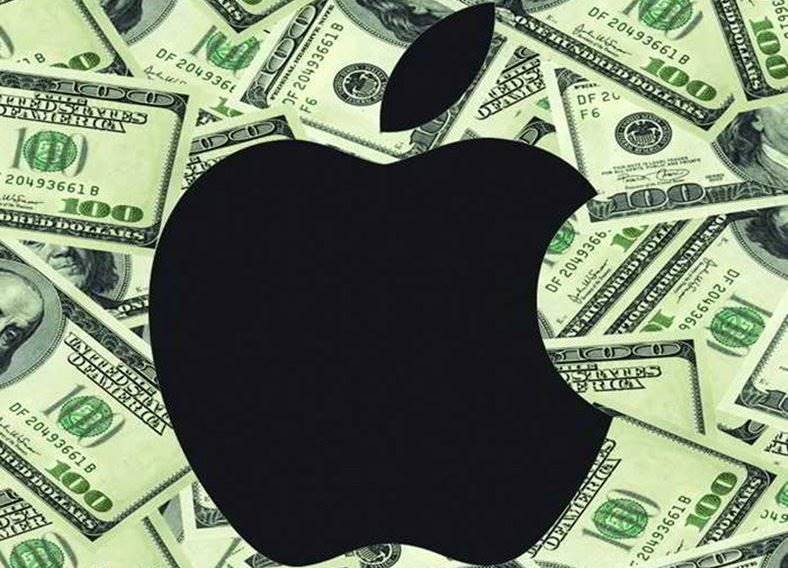52.2 milioane de telefoane iPhone au fost vandute de catre compania Apple in T1 2018, adica primele trei luni ale acestui an, americanii inregistrand incasari de 61.1 miliarde de dolari. 9.1 milioane de tablete iPad si 4.07 milioane de Mac-uri au fost deasemenea vandute de catre compania Apple in T1 2018, generand profit de 13.8 miliarde de dolari.
Vanzarile de telefoane iPhone au crescut cu 1.5 milioane de unitati, cele de tablete iPad cu 0.2 milioane de unitati, iar cele de Mac-uri au scazut cu 120.000 de unitati fata de T1 2017. In ceea ce priveste incasarile, vorbim despre o crestere de 8.2 miliarde de dolari, profitul inregistrand deasemenea o crestere de 2.77 miliarde de dolari, evolutia celor de la Apple fiind surprinzator de buna.
Desi foarte multa lume se astepta ca vanzarile de iPhone-uri sa fie in jurul valorii de 40 de milioane de unitati, iata ca in realitate acestea au intrecut inclusiv estimarile companiei Apple. Acest lucru poate sugera faptul ca iPhone X a avut o evolutie mai buna decat anunta la unison analistii, mai ales ca si incasarile celor de la Apple au crescut simtitor fata de T1 2017.
Cu aceste rezultate financiare, cei de la Apple arata cat de mult au gresit multi dintre cei care anuntau in ultimele luni o greseala imensa in lansarea iPhone 8 si iPhone X. Apple reuseste sa-si doboare recordul in materie de incasari pentru trimestrul fiscal al unui inceput de an, iar daca nu gresesc, acelasi lucru e valabil inclusiv pentru vanzarile de telefoane iPhone.
“Apple Reports Second Quarter Results
REVENUE GROWS 16 PERCENT AND EPS GROWS 30 PERCENT TO NEW MARCH QUARTER RECORDS NEW $100 BILLION SHARE REPURCHASE AUTHORIZATION ANNOUNCED, DIVIDEND RAISED BY 16 PERCENT
CUPERTINO, Calif.–(BUSINESS WIRE)–Apple® today announced financial results for its fiscal 2018 second quarter ended March 31, 2018. The Company posted quarterly revenue of $61.1 billion, an increase of 16 percent from the year-ago quarter, and quarterly earnings per diluted share of $2.73, up 30 percent. International sales accounted for 65 percent of the quarter’s revenue.
“We’re thrilled to report our best March quarter ever, with strong revenue growth in iPhone, Services and Wearables,” said Tim Cook, Apple’s CEO. “Customers chose iPhone X more than any other iPhone each week in the March quarter, just as they did following its launch in the December quarter. We also grew revenue in all of our geographic segments, with over 20% growth in Greater China and Japan.”
“Our business performed extremely well during the March quarter, as we grew earnings per share by 30 percent and generated over $15 billion in operating cash flow,” said Luca Maestri, Apple’s CFO. “With the greater flexibility we now have from access to our global cash, we can more efficiently invest in our US operations and work toward a more optimal capital structure. Given our confidence in Apple’s future, we are very happy to announce that our Board has approved a new $100 billion share repurchase authorization and a 16 percent increase in our quarterly dividend.”
The Company will complete the execution of the previous $210 billion share repurchase authorization during the third fiscal quarter.
Reflecting the approved increase, the Board has declared a cash dividend of $0.73 per share of Apple’s common stock payable on May 17, 2018 to shareholders of record as of the close of business on May 14, 2018.
The Company also expects to continue to net-share-settle vesting restricted stock units.
From the inception of its capital return program in August 2012 through March 2018, Apple has returned $275 billion to shareholders, including $200 billion in share repurchases. The management team and the Board will continue to review each element of the capital return program regularly and plan to provide an update on the program on an annual basis.
Apple is providing the following guidance for its fiscal 2018 third quarter:
• revenue between $51.5 billion and $53.5 billion • gross margin between 38 percent and 38.5 percent • operating expenses between $7.7 billion and $7.8 billion • other income/(expense) of $400 million • tax rate of approximately 14.5 percent
Apple will provide live streaming of its Q2 2018 financial results conference call beginning at 2:00 p.m. PDT on May 1, 2018 at www.apple.com/investor/earnings-call/. This webcast will also be available for replay for approximately two weeks thereafter.
This press release contains forward-looking statements, within the meaning of the Private Securities Litigation Reform Act of 1995. These forward-looking statements include without limitation those about the Company’s estimated revenue, gross margin, operating expenses, other income/(expense), tax rate, and plans for return of capital. These statements involve risks and uncertainties, and actual results may differ. Risks and uncertainties include without limitation: the effect of global and regional economic conditions on the Company’s business, including effects on purchasing decisions by consumers and businesses; the ability of the Company to compete in markets that are highly competitive and subject to rapid technological change; the ability of the Company to manage frequent product introductions and transitions, including delivering to the marketplace, and stimulating customer demand for, new products, services and technological innovations on a timely basis; the effect that product introductions and transitions, changes in product pricing and product mix, and increases in component and other costs could have on the Company’s gross margin; the dependency of the Company on the performance of distributors of the Company’s products, including cellular network carriers and other resellers; the inventory and other asset risks associated with the Company’s need to order, or commit to order, product components in advance of customer orders; the continued availability on acceptable terms, or at all, of certain components, services and new technologies essential to the Company’s business, including components and technologies that may only be available from sole or limited sources; the dependency of the Company on manufacturing and logistics services provided by third parties, many of which are located outside of the US and which may affect the quality, quantity or cost of products manufactured or services rendered to the Company; the effect of product and service quality problems on the Company’s financial performance and reputation; the dependency of the Company on third-party intellectual property and digital content, which may not be available to the Company on commercially reasonable terms or at all; the dependency of the Company on support from third-party software developers to develop and maintain software applications and services for the Company’s products; the impact of unfavorable legal proceedings, such as a potential finding that the Company has infringed on the intellectual property rights of others; the impact of changes to laws and regulations that affect the Company’s activities, including the Company’s ability to offer products or services to customers in different regions; the ability of the Company to manage risks associated with its international activities, including complying with laws and regulations affecting the Company’s international operations; the ability of the Company to manage risks associated with the Company’s retail stores; the ability of the Company to manage risks associated with the Company’s investments in new business strategies and acquisitions; the impact on the Company’s business and reputation from information technology system failures, network disruptions or losses or unauthorized access to, or release of, confidential information; the ability of the Company to comply with laws and regulations regarding data protection; the continued service and availability of key executives and employees; war, terrorism, public health issues, natural disasters, and other business interruptions that could disrupt supply or delivery of, or demand for, the Company’s products; financial risks, including risks relating to currency fluctuations, credit risks and fluctuations in the market value of the Company’s investment portfolio; and changes in tax rates and exposure to additional tax liabilities. More information on these risks and other potential factors that could affect the Company’s financial results is included in the Company’s filings with the SEC, including in the “Risk Factors” and “Management’s Discussion and Analysis of Financial Condition and Results of Operations” sections of the Company’s most recently filed periodic reports on Form 10-K and Form 10-Q and subsequent filings. The Company assumes no obligation to update any forward-looking statements or information, which speak as of their respective dates.
Apple revolutionized personal technology with the introduction of the Macintosh in 1984. Today, Apple leads the world in innovation with iPhone, iPad, Mac, Apple Watch and Apple TV. Apple’s four software platforms — iOS, macOS, watchOS and tvOS — provide seamless experiences across all Apple devices and empower people with breakthrough services including the App Store, Apple Music, Apple Pay and iCloud. Apple’s more than 100,000 employees are dedicated to making the best products on earth, and to leaving the world better than we found it.
NOTE TO EDITORS: For additional information visit Apple Newsroom (www.apple.com/newsroom), or call Apple’s Media Helpline at (408) 974-2042.
© 2018 Apple Inc. All rights reserved. Apple and the Apple logo are trademarks of Apple. Other company and product names may be trademarks of their respective owners.”

















